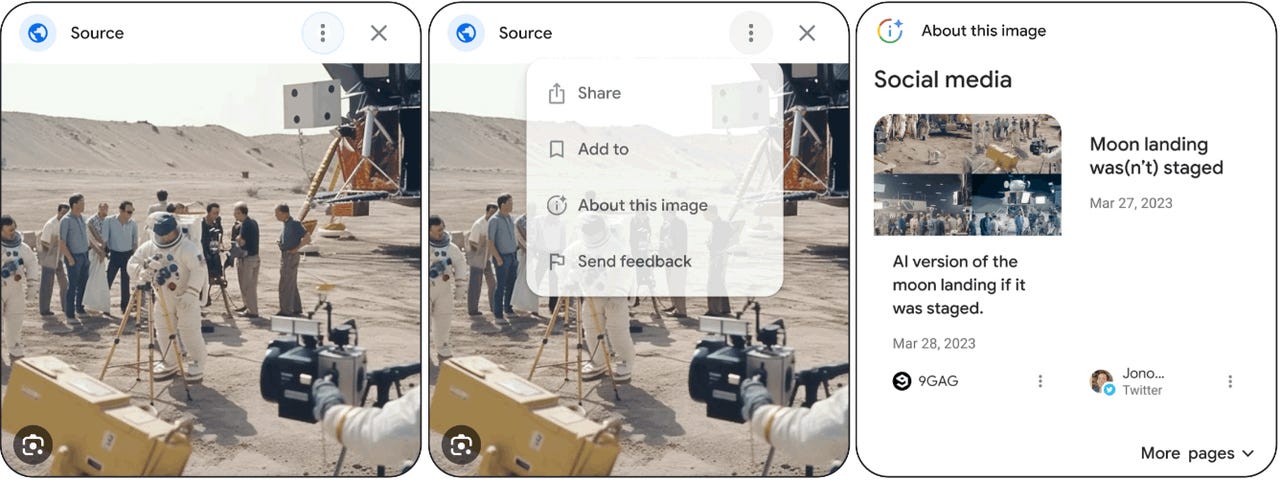































 Google
Google Picture this: You've come across a great image in a Google search that you'd like to use. But something about the image seems off, making your Spidey senses tingle while you wonder whether it's real or fake. Now Google has cooked up a way to determine the authenticity of an image via an upcoming tool called About this Image.
Scheduled to launch first in the U.S. in the coming months, About this Image will be an option available through the three-dot menu that appears for any image in Google's search results, Cory Dunton, product manager for Google Search, said in a blog post.
Also: How to join Google Search Labs waitlist to access its new AI search engine early
Selecting this option will tell you when the image and associated ones were first indexed by Google, where it first may have appeared, and where else it's been online such as on social media or fact-checking websites. The goal is to give you the necessary details to determine whether the image is real and genuine or whether it's a fake one created by AI.
Beyond the option appearing in Google's regular search results, it will pop up in other places. You'll be able to access it when searching an image or screenshot in Google Lens and when swiping up on search results in the Google app. Later in the year, you'll also be able to use it by right-clicking or long-pressing on an image in the Chrome browser on your desktop or mobile device.
Also: How to use Google Bard now
Fake content has been a pervasive problem on the internet, causing people to question whether what they view online is true. The growth of AI threatens to make that problem even stickier. As the tools become more advanced, they become ever more capable of generating images and other content that seem real but are actually fake.
To combat this growing threat, Google and other major players need to find ways to help us determine the validity of what we see online.
Also: I asked ChatGPT, Bing, and Bard what worries them. Google's AI went Terminator on me
As one example given by Dunton in the blog post, About this Image was asked to identify a photo depicting a staged moon landing. The tool cited several news articles confirming that the image was AI-generated and therefore fake.
Google also plans to make this capability work beyond its own search tools and apps. Dunton said that the company will make sure that every one of its own AI-generated images will contain a markup in the original file to give it context if you see it on a different site.
Also: Every hardware product Google just announced at I/O 2023 (and yes, there's a foldable)
Third-party creators and publishers, such as Midjourney and Shutterstock, will also be able to add similar markups to their own AI-created images. When those images then show up in a Google search, a label will identify them as AI-generated.
 Etiquetas calientes:
Inteligencia Artificial
innovación
Etiquetas calientes:
Inteligencia Artificial
innovación